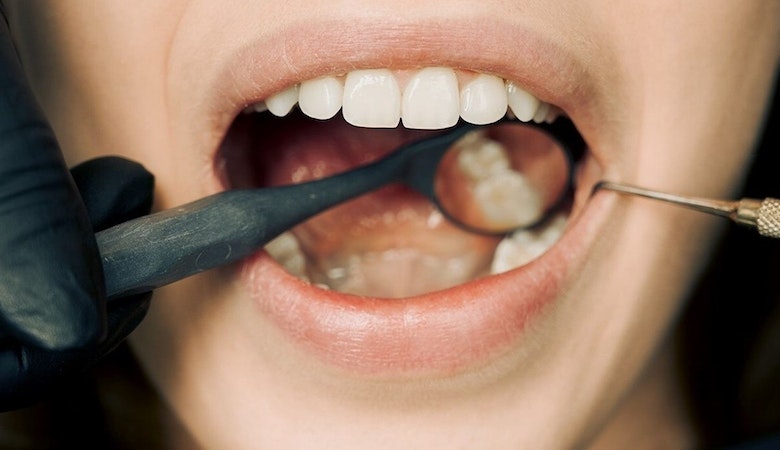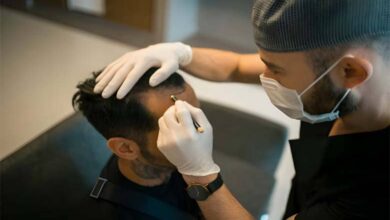5 Things You Should Know About Wisdom Teeth Extraction

Five million Americans spend around $3 billion yearly on wisdom tooth extraction, and 11 million patients experience painful symptoms such as bruising or swelling. These third molars, called wisdom teeth, often cause complications and can lead to oral health issues if left untreated. Understanding the significance of wisdom tooth removal and addressing common concerns and questions is essential for anyone facing the prospect of this procedure.
The costs vary according to the growth of your tooth. For example, it costs around $200-$700 if they barely show through your gums and are easily removable through simple extraction. On the contrary, in complicated cases where your wisdom teeth impact other teeth, the price ranges from $250-$1,100. However, the expenses of dental care are different in every area. Getting dental care in states like Maine and Vermont is the most expensive. In contrast, states like Kentucky and Alabama have the lowest costs.
Suppose you have any other concerns you’d like to address before your tooth extraction surgery. In that case, the following article contains vital information to prepare you for what’s to come.
The role of oral surgeons
Oral health is critical in certain states like Alabama, where it ranks 12th as a health concern. The state of oral health in Alabama is particularly noteworthy, as it received a $1.5 million grant for five years to enhance the oral health of its residents. One of the major cities in Alabama, Mobile, has been ranked 3rd in cities with bad dental health. These statistics emphasize the importance of seeking professional oral surgery services, including wisdom tooth removal.
When it comes to oral health, it’s essential to rely on the expertise of oral surgeons. These highly skilled professionals specialize in complex dental procedures like tooth removal. If you are located in West Mobile and are looking for oral surgery West Mobile offers a wide range of options. These experts can provide personalized recommendations based on your circumstances. They can assess the positioning of your wisdom teeth, determine if they are causing pain or potential damage, and recommend the most appropriate course of action.
Don’t hesitate to contact oral surgeons like those at Oral Surgery West Mobile, who are committed to offering the highest standard of care. They can guide you through the wisdom tooth removal process with ease and expertise. Remember, by consulting with experienced oral surgeons, you proactively address your wisdom tooth concerns and maintain optimal oral health.
Signs and symptoms
Common issues associated with wisdom teeth can cause discomfort and affect oral health. You may usually experience pain in the back of your mouth. This pain can be mild to severe, making eating, speaking, or concentrating difficult.
In addition to pain, swelling and inflammation in the gum tissue around the wisdom teeth are often observed. This swelling can result in a swollen jaw, making opening and closing your mouth uncomfortable. It may also lead to difficulty in proper oral hygiene, as the swollen gum tissue can be challenging to clean effectively.
Imagine waking up one morning with intense pain in the back of your mouth. You can’t eat, and you notice swelling around the area. Even brushing your teeth is too painful. If you are experiencing these symptoms, consult an oral surgeon who can evaluate your condition. Addressing these signs and symptoms can help alleviate discomfort and prevent complications.
Preparing for wisdom tooth removal
Preparing for your wisdom tooth removal surgery requires carefully following your oral surgeon’s instructions. One crucial step is to fast before the procedure to ensure your stomach is empty, mainly for using anesthesia. Fasting reduces the chances of complications during the surgery. Your oral surgeon will provide clear guidelines on when to start fasting and any restrictions on eating or drinking.
Communicating openly with your oral surgeon is critical. Make sure you inform them about any medications you’re taking. This communication helps them tailor the procedure to your needs and minimize risks.
Also, remember to plan your transportation arrangements. Wisdom tooth removal may involve anesthesia, so having reliable transportation is essential for your safety and peace of mind. Ask a family member or friend to come with you, so they can support you and ensure you have a safe ride home after the procedure.
Potential complications and risks
During and after your wisdom tooth removal procedure, you should be aware of potential complications that may occur, even if they are relatively rare. The most common complication you’ll need to look out for is the risk of infection. The surgical site can become vulnerable to bacterial growth, leading to pain, swelling, and other signs of infection. Following your oral surgeon’s instructions on post-operative care, like maintaining proper oral hygiene and taking prescribed antibiotics, is crucial in reducing disease risk.
Another rare but possible complication is nerve damage. The nerves responsible for sensation in your lower lip, tongue, and surrounding areas can be affected during the procedure. This damage can result in temporary or, in rare cases, permanent numbness or altered sensation. Rest assured. Your oral surgeon will take precautions to minimize this risk by carefully assessing the tooth’s position concerning the nerves. Choosing an experienced and skilled oral surgeon further reduces the chances of nerve damage.
Aftercare and follow-up
Maintaining good oral hygiene is essential during the healing process. Gently brush your teeth, avoiding the surgical area. Rinse your mouth with a saltwater solution or an antiseptic mouthwash as your oral surgeon recommends to promote healing and prevent infection. Avoid vigorous rinsing or spitting to prevent dislodging blood clots and interfering with the healing process.
Stick to soft, easy-to-chew foods for the first few days. Avoid hard, crunchy, or spicy foods irritating the surgical site. Go for nourishing foods like soups, yogurt, mashed potatoes, and smoothies. Drink plenty of water, but don’t use straws because suction can dislodge blood clots.
Pain and discomfort are typical after wisdom tooth removal. Binge-eat your favorite ice cream flavor or keep ice packs outside your face in the first 24 hours to reduce swelling and alleviate pain. Follow the prescribed pain management strategies and contact your oral surgeon if the pain persists or intensifies.
Conclusion
Remember, you are not alone on this journey. Many individuals have undergone wisdom tooth extraction and emerged with improved oral health and a renewed sense of well-being. Removing your wisdom teeth will ultimately contribute to a healthier and happier smile. You are taking an essential step towards preventing potential oral health issues and ensuring the long-term stability of your teeth and gums.




